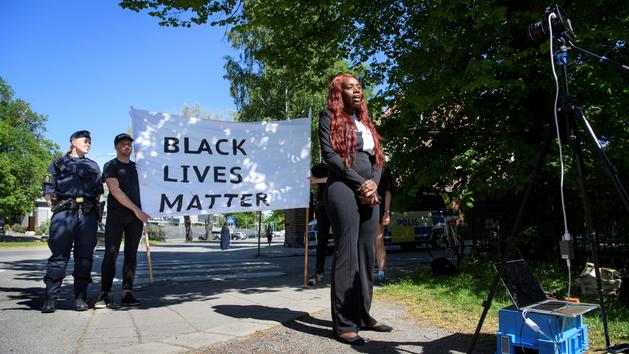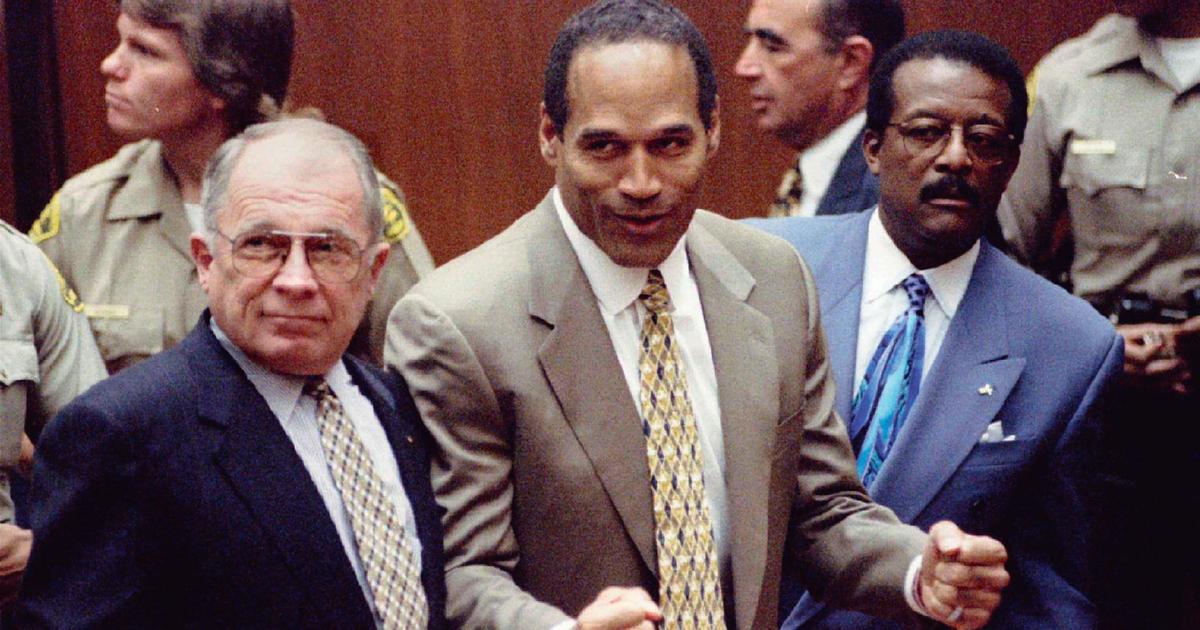" Don't turn your back on racism, " Nike wrote last Friday in a short video posted to Twitter. Featuring support the movement " Black lives matter " ( " The lives of blacks account ") in the United States, diverted his famous sportswear company slogan " Just Do It " to turn it into denial. " For once, don't do it, " read the publication: a way to invite citizens to stop pretending that there is " no problem in America ."
Read also: In Minneapolis, under curfew, residents organize their defense
George Floyd's death in Minneapolis on May 25 sparked a rage across the United States. The African American died " by homicide " because of " pressure on his neck " by a police officer during his arrest in the north of the country. For seven consecutive days, the country was ablaze, in reaction to the deep racial divisions that continue to fracture the country. Hundreds of thousands of Americans took to the streets to denounce racism, police brutality and more generally social inequalities.
Brands are taking the lead and are also sheltering from boycotts. They drape themselves behind ethics.
Guillaume Foucault, president of Corpcom.Faced with such a phenomenon, a wide range of companies has clearly taken a stand to support the movement. In addition to a few atypical brands, such as Patagonia, which has long cultivated a socially and environmentally responsible identity, brands generally take care not to be associated with any camp, particularly in social matters. But in recent years, consumer expectations have evolved and many are now considering companies as levers for societal and political change. “Brands are taking the lead and are also sheltering from boycotts. They pronounce acts of faith or affirm positions, and drape themselves behind ethics ” , analyzes the president of the agency of public relations Corpcom Guillaume Foucault.
Social networks, support platforms
Shared to date by nearly 100,000 Internet users on the social network, the Nike post has even been retweeted by competitors like Adidas and Converse. All have split a message of solidarity to underline their union. “ It is together that we are moving forward. It's together we change things, ”wrote Adidas. Nike is not at its first position: the brand had chosen in 2018 the American footballer Colin Kaepernick, icon of the fight for the rights of blacks, to celebrate its thirty years.
" Nike's communication plays on emotion, with almost religious music, and collective memory to strengthen the legend, " analyzes Guillaume Foucault.
The sports brand Reebok has also taken a position on the social network, recalling that it would not exist " without the black community ". The clothing and sneaker manufacturer calls for an end to the " status quo ". Puma, for its part, supported the Minnesota Freedom Fund, an organization that financially supports the arrested demonstrators, and invited internet users to join the cause.
Read also: White and black logos, donations ... Tech companies get involved after anti-racist riots
Besides sports equipment manufacturers, other companies have shown their support for the African-American community. On its own account, Twitter changed its profile image to a black and white version of its logo, accompanied by the hashtag #BlackLivesMatter in its bio. In the same vein, Google added a message of support under its search bar: " We support racial equality, and all those who seek it. WarnerMedia brands also changed their Twitter names to #BlackLivesMatter and quoted famous black novelist James Baldwin in a post: " Neither love nor terror blinds you: indifference blinds you." "
Netflix, meanwhile, collected 1 million “likes” by declaring on Twitter: “ To be silent is to be an accomplice. Black lives count. We have a platform and we have a duty to speak to our black members, employees, creators and talents. " A message approved by Hulu, one of its competitors, who responded with a heart.
A position, and after?
“ There was a time when companies said that they did not want to take sides, that they were Switzerland (neutral). This is no longer possible, ”insists Hank Boyd, professor of marketing at the University of Maryland with AFP. " It's a new era, " he adds. Like Tim Cook, David Solomon, CEO of Goldman Sach or Larry Fink, CEO of asset manager BlackRock, several big bosses have spoken out against racism in recent days.
Read also: Death of George Floyd: Trump presents himself as the president "of law and order"
If some Americans have welcomed the position of brands on social networks, many urge employers to go beyond simple messages of support by contributing to the funding of the fight against racism or the improvement of conditions of access to employment. “ Their support is light and efficient, full of good feelings and very American. But speaking is not very committed, in any case not too political ”, explains Guillaume Foucault.
" Companies today have the opportunity to fill the vacuum left by the government, " said Richard Edelman, head of the eponymous public relations agency. “ It doesn't have to be just communication. Actions are needed ”. The YouTube platform has pledged to spend $ 1 million on social justice initiatives. In response, several Internet users criticized the moderation efforts of the platform, deemed too weak, to fight against racist content online. Facebook boss Mark Zuckerberg has announced that he will donate $ 10 million to groups working on racial justice.
Read also: Anger is booming at Facebook
“ When there is civil unrest, people issue press releases; they publish platitudes [...]. I think the business community must go beyond press releases, " lambasted Ken Frazier, CEO of the pharmaceutical laboratory Merck, on CNBC on Monday . The only African-American to manage one of the thirty companies in the Dow Jones index, he advocates for practical initiatives aimed at the professional integration of minorities. Ken Frazier points in particular to the lack of diversity on the boards of directors in the United States.













